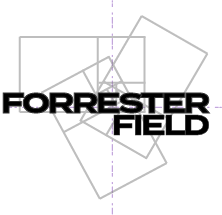At the threshold of a new technological evolution,
ForresterField utilizes
AI and Machine Learning
to help lawyers progress,
strengthen their practice,
and lead in a new legal landscape.
Our mission is to leverage modern
technology
to help lawyers become
stronger advocates
and happier professionals
We apply expertise in
both law and
artificial intelligence
to identify benefits and
avoid potential ethical pitfalls
We harness AI to create approachable tools that improve the human element.
-
Patent-pending LLM orchestrator that multiplies intelligence and reduces errors, and is adaptable to different environments where accuracy and diversity of thought matter.
-
Your digital universe. Simplified and working for you.
A centralized AI-powered manager
informed by your (or your company’s) data
powered by a multilayered protocol,
connected to the apps, software, and workflows that you already use
providing customized information and taking actions you need, when you need it.
-
Recover forgotten value from your crypto past.
A two-part cryptocurrency recovery toolkit:
Transforms secret seed phrases into public addresses in a secure, airgapped environment without ever touching a network
Searches look up addresses for balances, tokens, NFTs, and DeFi positions across Ethereum, L2s, Bitcoin, Solana, Cosmos-family chains, and match them against target wallets such as Gnosis Safe signers.
-
AI-powered legal assistant for criminal defense attorneys that seamlessly streghens existing workfows, organizes criminal discoovery, and provides strategic insight, making attorneys more effective advocates.
More info here -
Client confidentiality, cryptographically guaranteed.
Anonomyzer/Encoder/Decoder that allows legal professionals to integrate cloud LLMs into their workflow while maintaining confidentiality privilege and RPCs
More info
-
four-part system that:
identifies clues for recovering lost crypto accounts,
provides strategies to locate those clues,
applies tools and methods to validate them, and
executes recovery strategies
all delivered as an integrated suite designed to help individuals reclaim lost cryptocurrency, representing billions of dollars currently inaccessible.
Lawyers: Whether you like it or not, AI is here.
We are at the threshold of a technological revolution that will dwarf the internet's power and change how we live. While some predict promise and others doom, AI is not going away. Regardless of your age, familiarity with AI, or desire to embrace new technology, AI will impact our profession.
But machines will never replace lawyers because they can't. Despite the jokes, the practice of law—being an advocate—is a uniquely human element that will sustain the profession. But that doesn't mean you shouldn't embrace it. Or if you don’t take the time to understand it, you won’t be passed over by those who do.
The emergence of AI will strengthen the practice of law because AI gives attorneys superpowers, making us better at our jobs while allowing us more personal time. An attorney who embraces AI will likely be better informed, more prepared, and happier than if they didn’t. But embracing AI doesn't mean lawyers must take up coding or comprehend the parameter adjustments that define deep neural networks. Simply taking reasonable steps to understand the technology and how it can improve your practice will make you a better advocate.
In fact, as an attorney, you have a duty to understand AI and know how it can impact our profession. New technologies create novel ethical challenges for the legal profession because they will inevitably impact legal practice and common law. As AI becomes more intertwined with society, it will introduce new dynamics that impact litigation and could become central issues in your clients’ cases. Even if you don’t plan to embrace the technology, knowing the basics will be increasingly more important to you as the technology progresses.
But regardless of whether you think AI will lead to a humanistic utopia or apocalyptic horror, we help provide the knowledge and tools to help blunt its impact on the law profession. Whether it is providing information in layperson’s terms, helping to craft AI-fueled additions to your current workflow, or developing a custom AI suite for your firm, we can help bridge the gap and support legal progress.
AI Duality
As with many things in life, the duality of Artificial Intelligence is strong. For all the promise that AI can bring to an attorney’s practice, risks and ethical considerations must be navigated by professionals who use it.
AI can be used to:
Avoid busywork and automate time-wasting elements;
Communicate more effectively and efficiently with clients, staff, and the judicial system;
Dramatically reduce the costs of research on any subject one can imagine;
Produce properly formatted, relevant, and logical legal briefings in moments;
Increase access to justice;
Actualize concepts previously limited to theory;
Generate greater insights into one’s practice; and
Generate more free time!
But for all the benefits, AI also:
Exists to fail (attempts to simulate reality always have confidence intervals)
Produce outputs that can feel manipulative and unhelpful;
Can feal to understand the context you take for granted;
Will tell you what you want to hear;
Reflects the biases contained in the data that it was trained on;
Exists almost exclusively to create profits;
Remains inaccessible to the same populations that lack access to other inelastic goods, services, and guarantees; and
Requires human oversight.

